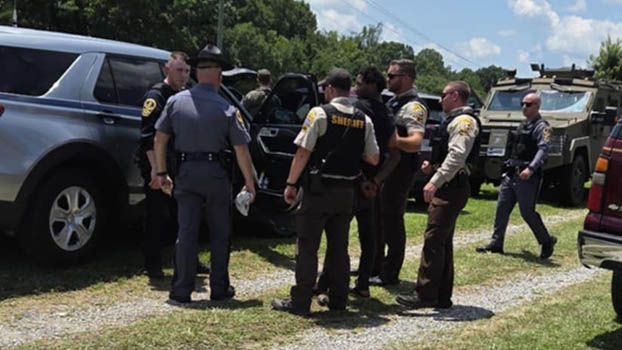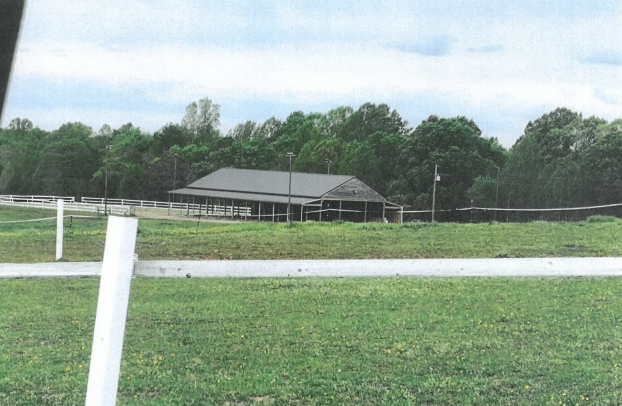Opinion — Returning to Richmond
Published 5:26 pm Saturday, April 30, 2022
|
Getting your Trinity Audio player ready...
|
On Wednesday, April 27, we will return to Richmond to review and vote on Governor amendments. We are currently still in special session, and we still have bills in conference. Wednesday will be a long day, but neither the budget nor the gas tax holiday will be on the agenda. Those are items that remain to be addressed.
House Appropriations Chair Barry Knight and Senate Finance Chair Janet Howell determined they won’t have an agreement on a revised budget for this year, or a new one for the next two years, in time for the one-day veto session this week. Real progress was made in budget discussions last week but still are not near a final agreement.
Among Governor Youngkin’s budget priorities is a package of more than $5 billion in one-time and ongoing tax cuts. The Governor also wants the body to pass new spending on public education and more spending on Virginia’s behavioral health system. The House has endorsed the Governor’s spending plan while the Senate rejected portions of his proposals for cuts in income and sales taxes.
The Senate Finance and Appropriations Committee has rejected his proposal for a reduction in the last 5-cent-per-gallon state tax on gas. Democrats say they also will not approve his new proposal to suspend the entire 26.2-cent-per-gallon tax for three months.
The Senate Finance committee will meet on Wednesday morning before the veto session, while House Appropriations does not have a meeting scheduled this week.
Veto session begins at 12 p.m. on Wednesday and can be watched live at: https://virginiageneralassembly.gov/house/chamber/chamberstream.php.
After two years of COVID-19 closures and other mitigation measures, and now, a labor shortage and surging inflation, businesses and workers in Virginia need advocates in Richmond. It’s clear that overregulation, over-taxation, and government meddling have created nothing but trouble for the business community.
House Republicans are changing that. One of our top priorities during the 2022 General Assembly legislative session has been to pull back the reins on out-of-control bureaucracy in Virginia. We believe in rewarding good business decisions, not punishing them. We believe in incentivizing growth, not crushing it.
Under new Republican leadership, we spent this session working to make it easier for leaders in business, entrepreneurship, and economic developers to make certain Virginia is the best place in the country to live, work and raise a family.
Following a “Day One” Executive Order by Governor Glenn Youngkin, the Virginia Safety and Health Codes Board voted to end the COVID-19 inflexible and outdated COVID standards that had been in place for employers during much of the pandemic.
Meanwhile, Republicans worked to pass legislation that will limit the emergency powers of any Virginia Governor, regardless of political party. HB 158 limits emergency orders to 45 days and requires the General Assembly to approve before the Governor can reissue the same rule, regulation or order. Gone are the days when the Commonwealth’s executive branch can unilaterally declare a state of emergency with no end in sight.
Further, with HB 1301, we acted to help families who are struggling to cover the cost of energy by advancing legislation that would end Virginia’s membership in the Regional Greenhouse Gas Initiative (RGGI). Even advocates of RGGI admit that it fails to do the one thing it was created to do: reduce carbon emissions. Instead, it’s counted as a success by its advocates because of the cash it brings into the Commonwealth’s coffers. RGGI is a tax parading as a “free market solution.” Virginia needs real solutions. Not more taxes.
In that same vein, the House advanced legislation (HB 118) to roll back the so-called Virginia Clean Economy Act (VCEA), a “green” measure that makes life a lot more expensive for Virginians (just as gas prices are sky-rocketing). What’s become clearer than ever during recent months is that the Commonwealth of Virginia and the whole of the United States need to embrace an all-of-the-above approach to energy, both as a savings measure and as a national security measure. According to State Corporation Commission estimates, the VCEA means that the average Virginia family pays $800 more each year in energy costs. That’s a price many Virginians, including our most vulnerable, can’t afford to pay.
As Democrats embrace a top-down, one-size-fits all approach to government, I’ll continue to fight for the rights of community and business leaders, and I’ll make sure your voice is heard.
Farmers are constantly on the receiving end of complaints about water quality in the Chesapeake Bay, as more urban areas seek to regulate how our farms operate. It’s not fair to ask farms to bear the costs of cleaning up the Bay on their own. That’s why our budget fully funds the Best Management Practices program with the Department of Agriculture and Consumer Services. This budget puts more money toward helping farmers pay to keep cattle out of streams and other best practices than any budget in recent history.
The House and Senate passed HB 206, legislation that preserves the integrity of prime agricultural soils, forest land, and other natural and historic resources by requiring applicants for certain solar and energy storage projects to analyze environmental impacts and — when necessary — submit a plan to mitigate any harmful impacts.
House Republicans believe that we can move Virginia toward a more sustainable future by empowering innovators, embracing free-market solutions (that don’t put the burden on the shoulders of taxpayers), and by supporting policies that make Virginia a hub for clean energy industries and jobs. The House budget also includes, for instance, $5 million for the Virginia Economic Development Partnership to develop a Wind Industry Supply Chain Grant Fund to support recruitment of a supply chain industry to Virginia for the offshore wind industry.
Del. C. Matthew Fariss represents Buckingham in the Virginia House of Delegates. His email address is DelMFariss@house.virginia.gov.





